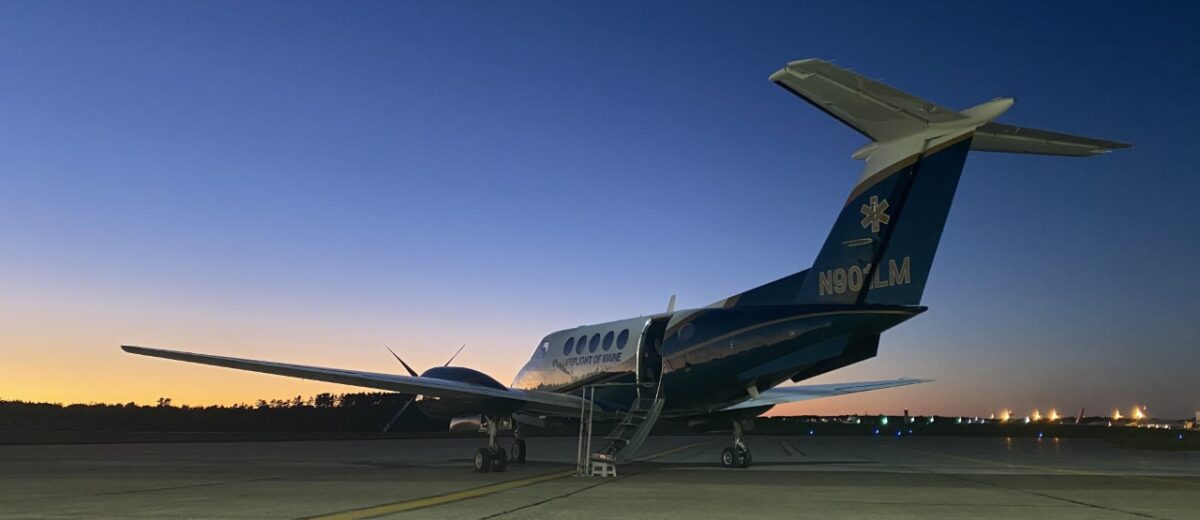Airplane
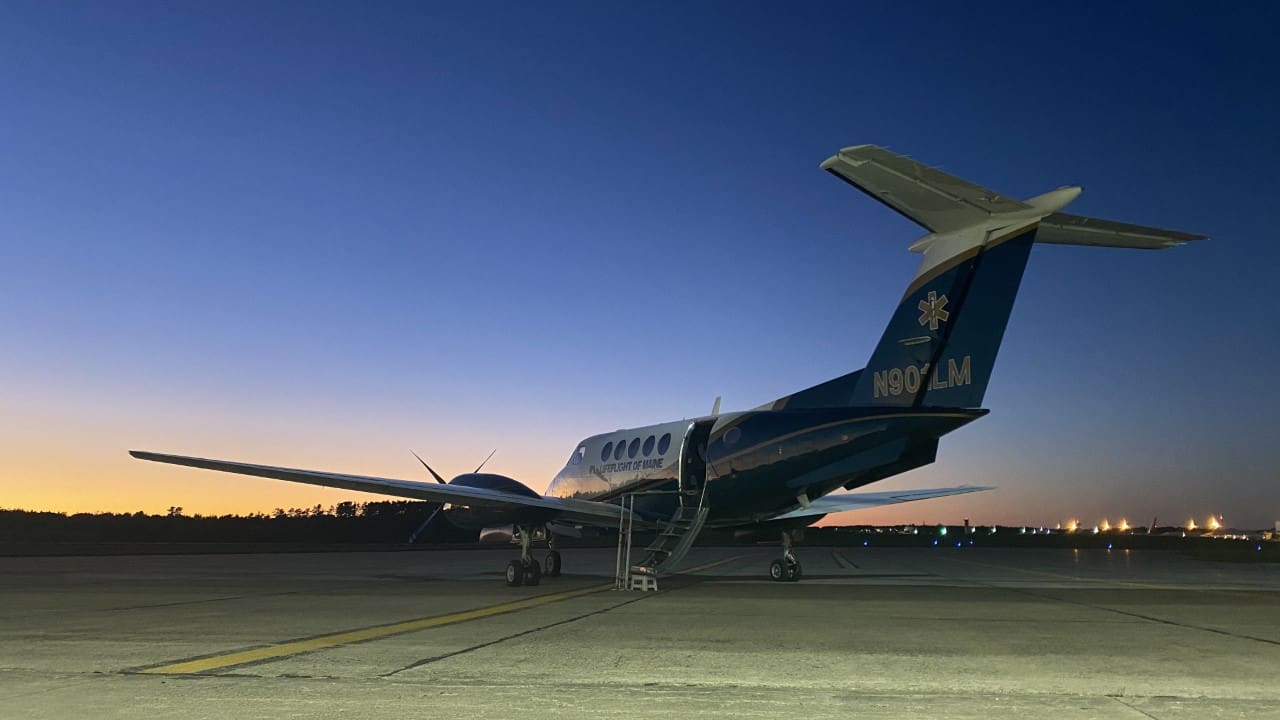
- Home
- /
- Our Services
- /
- Transport
- /
- Airplane
While LifeFlight of Maine primarily uses helicopters (also called rotor-wing aircraft), long-distance transport and all-weather flight are optimized by the use of airplanes (fixed-wing aircraft). LifeFlight’s Beechcraft King Air B200 provides greater speed and efficiency over long distances and improves all-weather capability (it can climb through freezing rain and fog).
The King Air cruise speed is 310 nautical miles per hour with a 1,000-mile range. The aircraft is pressurized, uses IFR and state-of-the-art navigation, is equipped as an ICU, and is flown with two pilots, and a two- to three-person medical crew.
The King Air was added to the LifeFlight fleet in May 2015 and promptly underwent extensive upgrades to its wings, propellers, and instrument panel. These upgrades allow the new plane to operate on shorter runways. A new, state-of-the-art avionics installation offers improved navigation, weather, and instrument flight capabilities. Better onboard communications were also installed, as well as a satellite phone that allows the medical crew to speak with specialty physicians while on the ground and in the air.
Click here to meet our airplane pilots and aviation maintenance technicians.
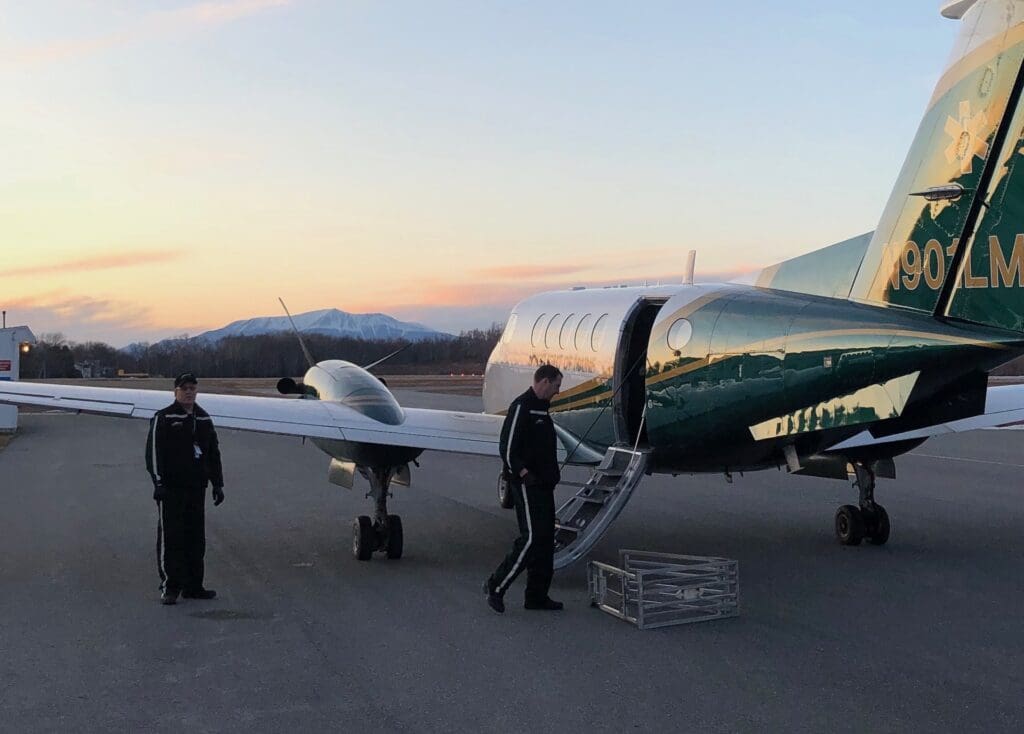
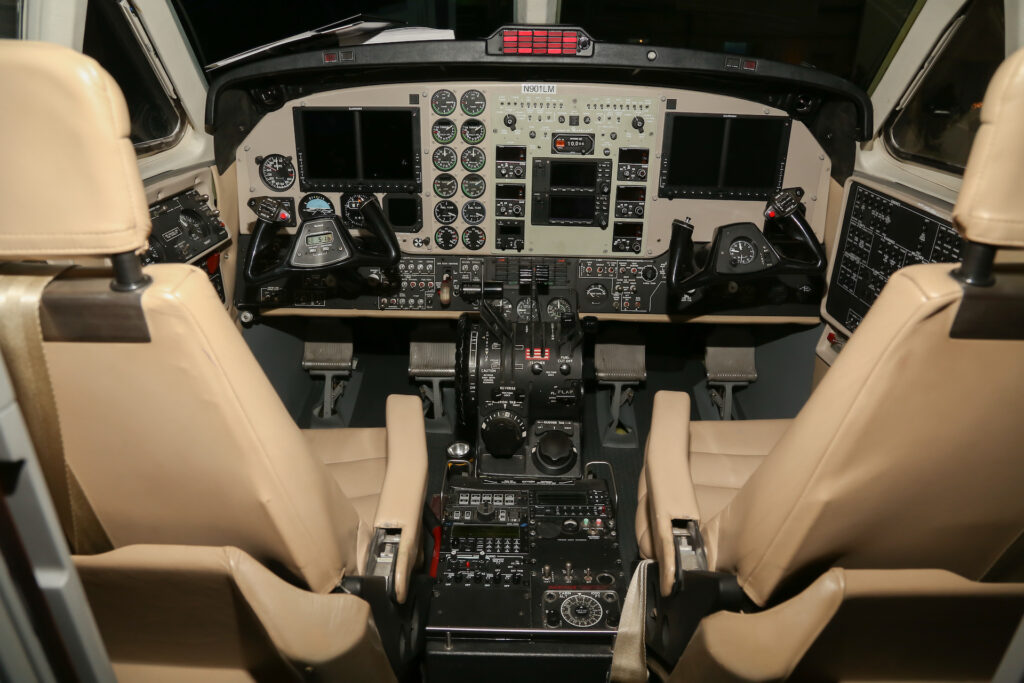
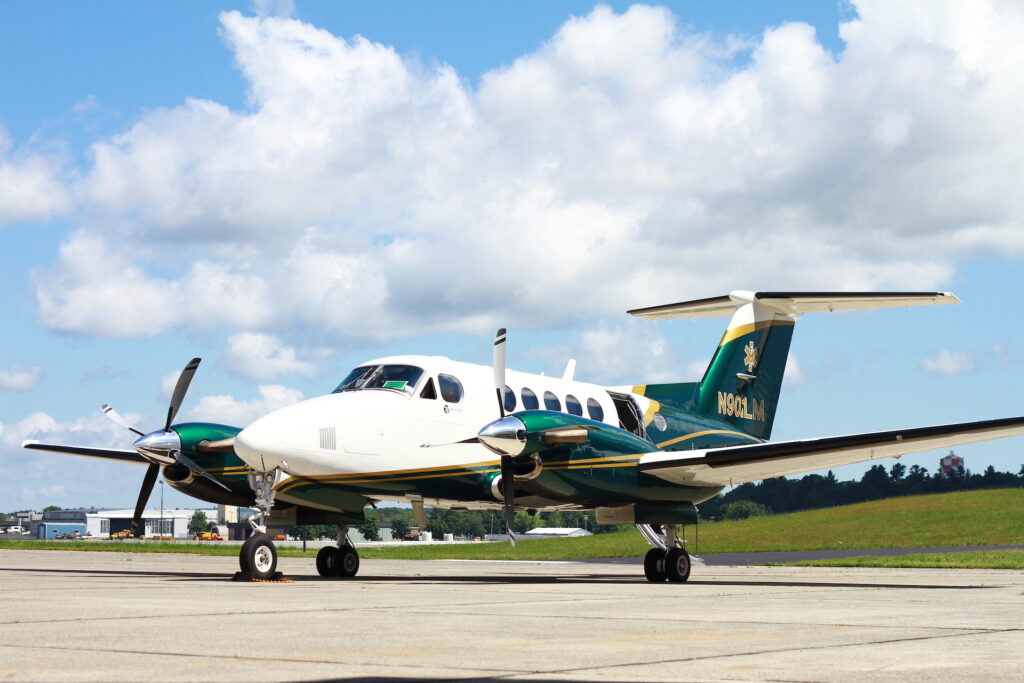
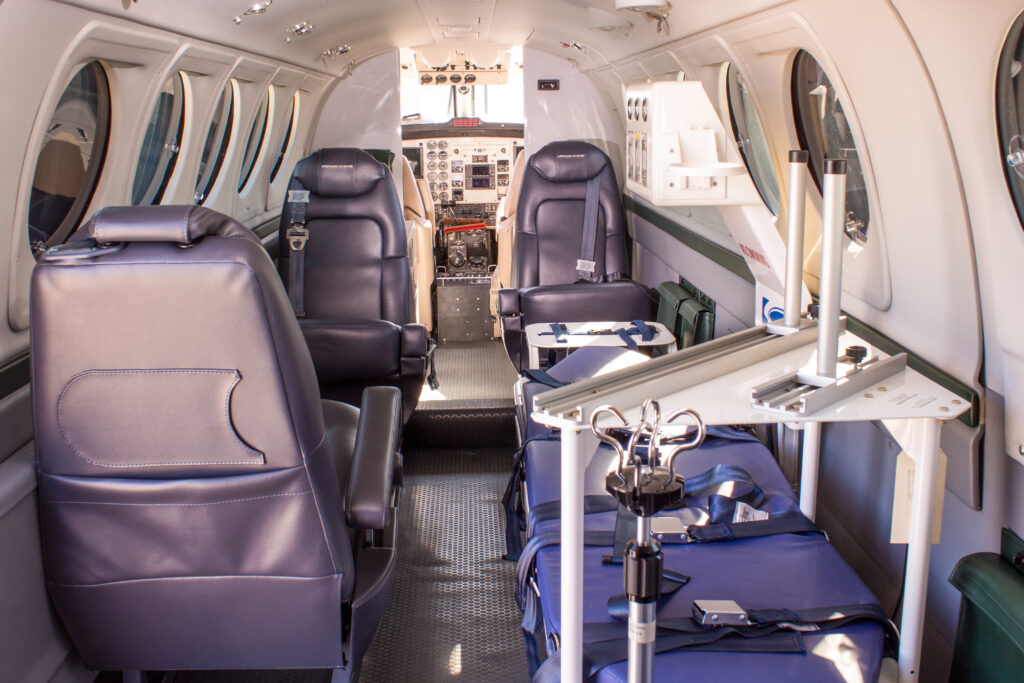
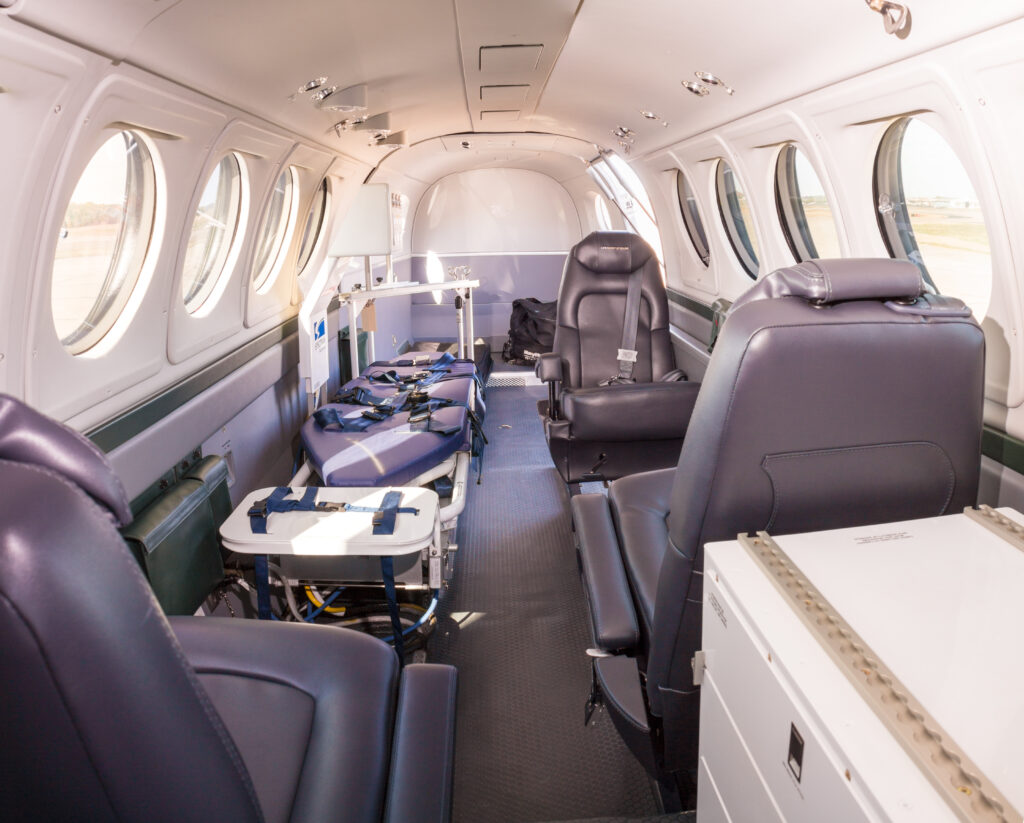
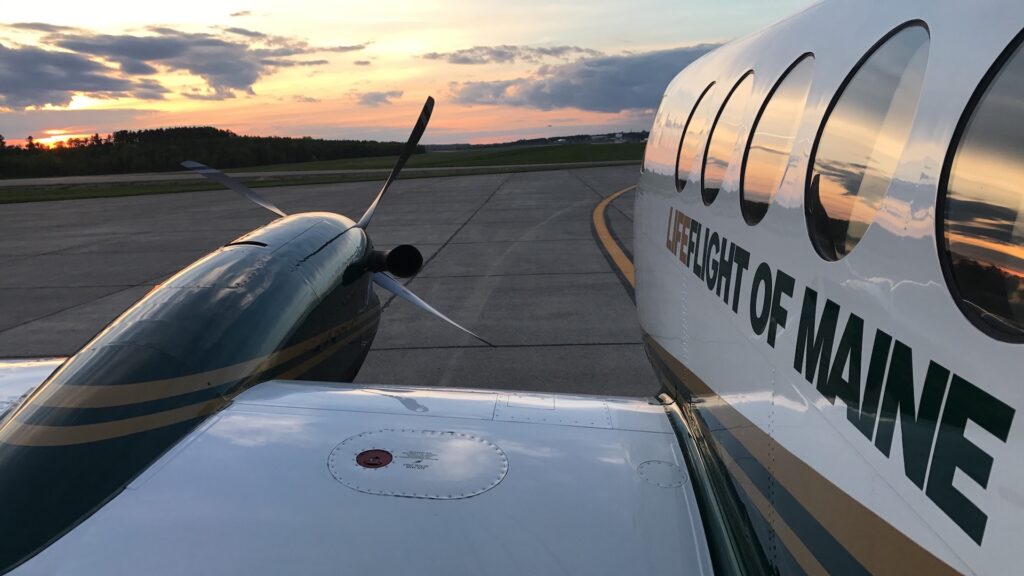
By taking the primary role for long-distance flights, the fixed-wing frees up the helicopters for shorter-distance flights, increasing LifeFlight’s capacity and overall transport profile. This also reduces more expensive flight hours on the helicopters. The fixed-wing transports between 350 and 400 patients per year.
The fixed-wing is ideal in supporting transports from Aroostook County and has an effective range to the Midwest (Ohio and Michigan) to the mid-Atlantic (North Carolina) for highly specialized care and transport. In addition, the fixed-wing allows patients to return to the U.S. from Toronto to Prince Edward Island to Halifax, Canada, and supports mutual aid for Boston MedFlight to Nantucket and Martha’s Vineyard.
LifeFlight is working with the Maine DOT, the FAA, and communities to improve runways to support access to the King Air across rural Maine, with projects in Rangeley, Jackman, Eastport, Biddeford, and Machias.
As with the helicopters and ground, LifeFlight teams work seamlessly across all vehicle types, and each vehicle is configured to support critical patients including:
- Advanced ventilators
- Invasive cardiac and neuro-monitoring
- Multiple infusion pumps
- Laboratory
- Ultrasound
- An ICU pharmacy
- Blood and plasma product
- Advanced resuscitation and trauma care
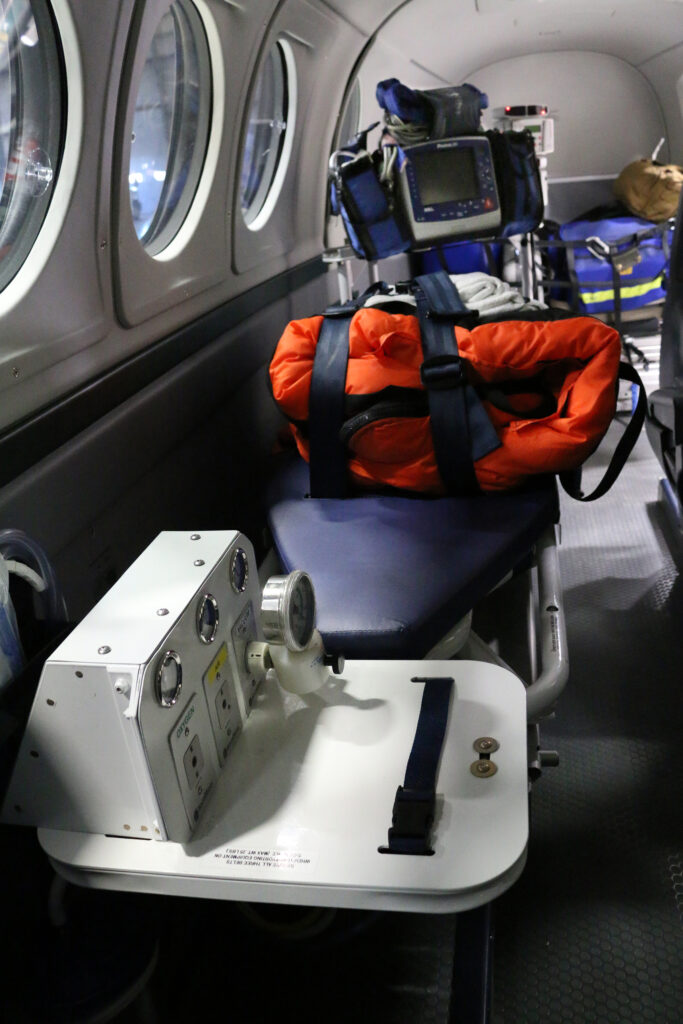
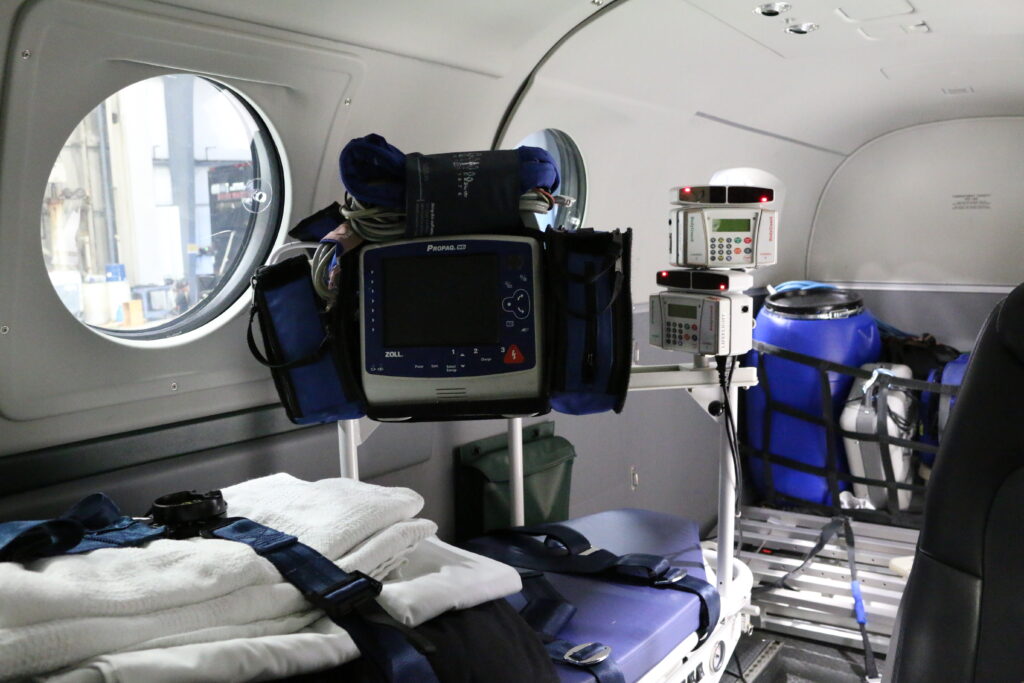
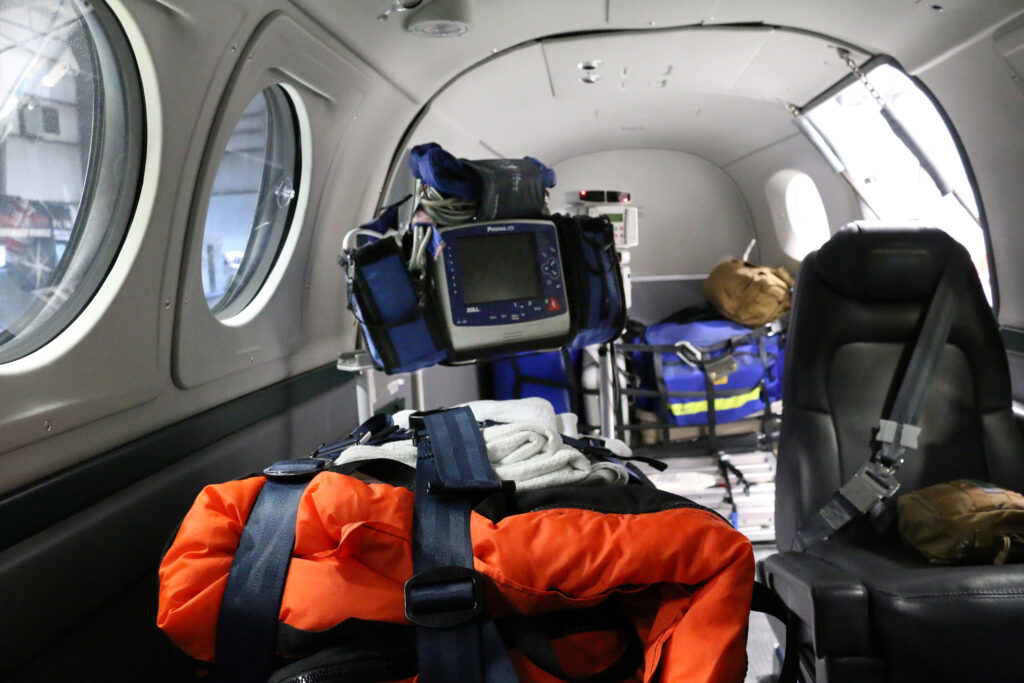
The vehicles can be reconfigured with specialized newborn transport isolettes, intra-aortic and ventricular assist devices, tandem hearts, and ECMO (extracorporeal membrane oxygenation) for patients needing cardiopulmonary bypass.
